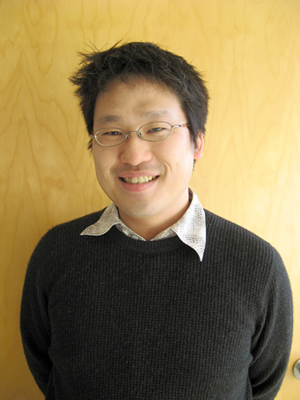 Frontiers in Cosmology Saturday, February 7, 2009 1-2 P.M., 2.302 ACES map Dr. Eiichiro Komatsu Associate Professor in Astronomy Director, Texas Cosmology Center The University of Texas at Austin Abstract
Over the last 10 years, our
understanding of the
Universe has advanced
tremendously thanks to powerful
theory and observations. We now
know how old our Universe is, and
how much matter and energy there is
in the Universe, quite accurately.
However, the more we learn about
the Universe, the more challenges
we seem to face: recent observations
clearly indicate that we do not
understand 95 percent of energy/
matter in the Universe today!
How about the history of the
Universe? How much do we know
about the Universe when it was
very young—perhaps as young
as a tiny fraction of a second old?
Powerful development in theory
and observations of cosmology has
finally made it possible to peer into
the epoch before the Big Bang—the
period called Cosmic Inflation. How
can we possibly "see" such an early
epoch?
It is often said that we are living
in the Golden Age of Cosmology, but
at the same time we are living in an
extraordinarily challenging moment
for Cosmology. What is the nature of
Dark Matter and Dark Energy? What
powered the Big Bang? In this lecture I
will review the outstanding questions
and recent developments—Frontiers
in Cosmology.
The Great Lectures in Astronomy series features distinguished speakers presenting a topic in modern astronomy for interested non-astronomers. The lectures are sponsored by the The University of Texas at Austin McDonald Observatory and Department of Astronomy Board of Visitors. |